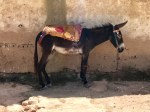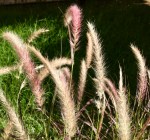A life without steep learning curves is no life at all.
—Tahir Shah, In Arabian Nights: A Caravan of Moroccan Dreams
Even if we’d had a magic carpet to fly us to every corner of Morocco, eight days wouldn’t have been enough. A land so ripe with art and architecture, history and tradition, faith and Oriental mystique—not to mention a jet-set nightclub scene in Marrakech that rivals Studio 54 in its heyday—would take a lifetime, maybe longer, to absorb.
Although I have to admit that what I know of the nightlife comes only from the blog “A Life in Marrakech,” I did see and experience enough wonders on my first trip to the African continent to change how I think and feel about many things.
Take camels, for instance. With their can’t-be-bothered attitudes and propensity for hissing, gurgle-growling, and spitting, they’re kind of like seven-feet-tall cats, but much more handy in a hot, arid climate, what with their ability to haul people and heavy packs and even loaded carts without a sip of water for several days. No wonder they’re called the ships of the desert.

My husband, Chris, and I planned to meet a few of these surly beasts at a Berber-style camp in the stony desert of Agafay, just an hour’s drive from Marrakech. It was a romantic setting, to be sure, complete with a candlelit dinner, a pin-pricked night sky, and hardly a sign of civilization for miles. But to live in the way of the Berbers, the original, semi-nomadic inhabitants of North Africa, means enduring the absence of not only wifi but also electricity. As in no AC. No box fans. No relief from the heat trapped inside our red-mud bungalow.

At bedtime Chris opened the windows and placed smoldering insect-repellant coils on each sill. The room was already aglow with candles and kerosene lanterns that had been lit by the staff as we dined in a private tent down the hill. Now with the bungalow windows opened to let in the cool night air, these tiny flames would beckon every bug waiting to storm our citadel.
I did my best to secure the mosquito netting around our bed, but it was one of those nets made more for show than functionality. There were gaps at every seam big enough for a bird to fly through. As I lay beneath the drape of white gauze, inhaling citronella mixed with kerosene, I thought of our former yurt life back in Montana, that once-in-a-lifetime adventure Chris had talked me into. There, too, we had a bed with mosquito netting. There, too, we’d lain, bellies up, waiting for the heat to break. Why do we do this to ourselves, I wondered. We’re middle-aged and sort of retired. Shouldn’t life be more comfortable now?
 The next morning we were supposed to meet our guide at 10 a.m. to beat the heat. He would take us to Abraham, a traditional Berber who had traded in camels his whole life, just as his father and his father’s father had done. By 8:30 a.m. the night air had already been driven out by a ball of fire that now beamed upon every living thing. I ditched the hut, which had never really cooled down, to explore the camp’s palm-treed oasis before breakfast, but I only made it as far as a nearby cloud of pillows under a tent of camel-hair blankets. As I sat there in a triangle of shade, waiting for Allah’s breeze to bless me, I noticed a shepherd with his flock in the distance. In his jellaba and wide-brimmed straw hat, he seemed to glide along the barren hillside. I, on the other hand, could barely muster the energy to pull myself up off the pillows to get a better look at him. Every cell in my body felt like it had a hot sandbag tied to it. My get-up-and-go had got up and went, and I was stuck somewhere between a dream and wakefulness.
The next morning we were supposed to meet our guide at 10 a.m. to beat the heat. He would take us to Abraham, a traditional Berber who had traded in camels his whole life, just as his father and his father’s father had done. By 8:30 a.m. the night air had already been driven out by a ball of fire that now beamed upon every living thing. I ditched the hut, which had never really cooled down, to explore the camp’s palm-treed oasis before breakfast, but I only made it as far as a nearby cloud of pillows under a tent of camel-hair blankets. As I sat there in a triangle of shade, waiting for Allah’s breeze to bless me, I noticed a shepherd with his flock in the distance. In his jellaba and wide-brimmed straw hat, he seemed to glide along the barren hillside. I, on the other hand, could barely muster the energy to pull myself up off the pillows to get a better look at him. Every cell in my body felt like it had a hot sandbag tied to it. My get-up-and-go had got up and went, and I was stuck somewhere between a dream and wakefulness.
 A few minutes later I heard feet shuffling up the gravel path behind me. I turned around to see Chris’s crimson face swimming in sweat. “No water,” he said. He took off his hat and wiped his forehead with his forearm. “I’ve looked everywhere.”
A few minutes later I heard feet shuffling up the gravel path behind me. I turned around to see Chris’s crimson face swimming in sweat. “No water,” he said. He took off his hat and wiped his forehead with his forearm. “I’ve looked everywhere.”
“I’m sure they’ll serve some with breakfast, which should be any minute now,” I said as I let myself fall back into the pile of pillows. Staff had been scarce since our arrival at camp the day before. It was Ramadan, which meant no food or water (or cigarettes or sex) from sunup to sundown for those serving us. Were they as thirsty and tired as we were? Did their free will, their choice in the matter, somehow reduce their suffering?
 “I don’t know about the camel ride,” Chris said. “Being out here in the desert for the first time, in this heat, and the sun and the bugs, with a stinky camel? That’s my idea of hell. Plus, now I have diarrhea. I don’t know what could be worse.”
“I don’t know about the camel ride,” Chris said. “Being out here in the desert for the first time, in this heat, and the sun and the bugs, with a stinky camel? That’s my idea of hell. Plus, now I have diarrhea. I don’t know what could be worse.”
He had a point. It would be easier—and far more comfortable—to get inside our guide’s SUV and head to the next destination in air-conditioned luxury. But would that be memory-making material? In our golden years would we say, “Hey, remember that car ride we took through the desert in the summertime? You know, the one you snored through?” Here we were, surrounded by people making physical sacrifices for Ramadan’s noble goals of spiritual reflection, self-improvement, empathy, and generosity. Surely we could rally to our much smaller goal of meeting a camel, even if we had to hide every inch of our skin from the sun and hold our breath because of the stink.
“I’m sorry, but we have to do it,” I said as I grabbed my things and headed toward the breakfast tent.
Suddenly, the day felt full of promise.




Such vivid description! Even though it’s midwinter in New Zealand, and I’m sitting here with a cup of tea in my polar fleece dressing gown trying to muster up the courage to have a shower and get dressed, you made me feel very hot and thirsty!
LikeLiked by 1 person
Oh, good! And just reading about your polar fleece and cup of tea makes me look forward to our winter here–which I can’t believe I’m saying already! 🙂
LikeLiked by 1 person
I loved you first Morocco post, Monica. And truly admire the way you won’t let a few hardships get your down. I can’t wait to read the next installment!
P
>
LikeLiked by 1 person
Thanks, Patti! I have to admit that the hardships do get me down sometimes. I’ve just learned to plow through them most of the time. As Rick Steves suggests: “You have to make up your mind to be militantly optimistic.”
LikeLike
I know the ships of the dessert win over the SUV. I was very thirsty by the end of Part I, and do hope you find water before Part II. You two amaze me. What is in store? Write the next chapter soon. Hugs. Anne
LikeLiked by 1 person
Hi Anne! Well, one thing’s for sure: you know we lived! 🙂
LikeLike
Consider the poor camel. He has 35 million years of evolution behind him, and what has it come to? He’s stuck in nature’s oven, shlepping around some upstart creature’s laundry. No wonder he’s in a bad mood, and the promise of the day is to spit in the upstart’s eye!
A hot start to this series…
LikeLiked by 1 person
No kidding. I wouldn’t have a much better attitude if it were me!
LikeLike
Dreadful heat, surly camels, no water and the prospect of a trip in the desert with a guide suffering the deprivations of Ramadan. What’s not to like?
LikeLiked by 1 person
Exactly, Mick! 🙂
LikeLiked by 1 person
I never want your stories to end. Yearning for the next chapter. I think I need a glass of water!!
LikeLike
Thank you, Tiffani! It hasn’t been too hard to remember the heat. It’s been awfully hot here in Montana lately!
LikeLike
Loved this. I’m with you, the more you experience the “real” moments, those moments of discomfort, the greater your understanding of the place in which you are travelling. No water even in that heat during sun up times… wow, I can’t imagine what that would do to a person. Can’t wait for the next instalment.
LikeLiked by 1 person
Hi Sheri. I agree: discomfort can be a good teacher. And good fodder for stories too! When things start to go wrong on our trips, as they inevitably do, that’s always the silver lining. 🙂
LikeLike
I feel almost guilty for sitting here with the AC vent at my feet sipping on a cold beer! Like everyone else, I can’t wait for the next installment.
LikeLiked by 1 person
Sometimes armchair exploring is the best! 🙂
LikeLiked by 1 person
Reblogged this on NFNews and commented:
Monica and Chris have great adventures and you get to relive some of these through Monica’s blog, Postcards from Polebridge. Enjoy!
LikeLiked by 1 person
Thanks for the props, Team Mago. 🙂
LikeLike
You’ve got a way with words, girl—and worlds! I love it when I remember I have posts of yours to read. Makes for the best commute!!
LikeLike